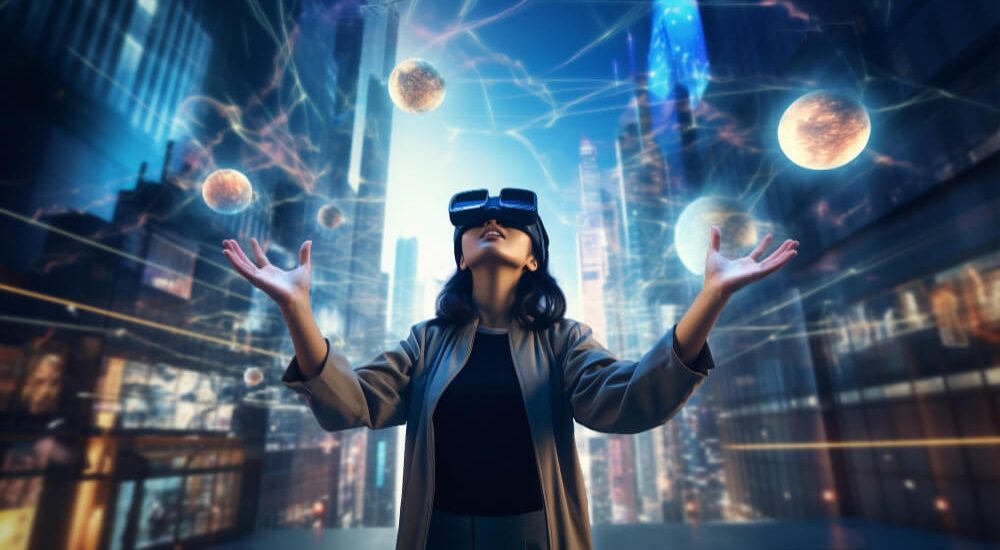In today’s fast-paced, technology-driven world, human connection has never been more crucial. While technology offers unprecedented access to communication and information, it often comes at the cost of genuine relationships and emotional bonds. This article explores the importance of human connection in the digital era, how technology both aids and challenges it, and practical ways to foster meaningful relationships in a connected yet isolated world.
Understanding Human Connection
At its core, human connection is the bond that forms when individuals relate to one another on an emotional, intellectual, or physical level. It’s the foundation of trust, empathy, and collaboration. This connection transcends mere communication; it is about being truly present and engaged with others, creating a sense of belonging and mutual understanding.
Human connection is what turns acquaintances into friends and coworkers into teammates. It’s the glue that holds relationships together, whether personal or professional. When this bond is nurtured, it can lead to deeper satisfaction and purpose in life.
Why Human Connection Matters
- Emotional Well-being: Strong relationships are vital for mental health. They provide a support system that helps individuals navigate challenges, reducing feelings of loneliness and depression. Genuine connections also boost happiness by fostering a sense of belonging.
- Physical Health: Numerous studies have linked human connection to better physical health. Connected individuals tend to have lower levels of stress hormones, healthier immune responses, and a reduced risk of chronic illnesses such as heart disease.
- Productivity and Creativity: In professional settings, collaboration and teamwork thrive when individuals feel a genuine connection with their peers. Trust and open communication encourage innovation, problem-solving, and a shared sense of purpose.
- Resilience in Adversity: During difficult times, human connection acts as a buffer against the negative impacts of stress. It provides emotional and practical support, helping individuals recover more quickly from setbacks.
- Fostering Empathy and Understanding: Meaningful interactions cultivate empathy, allowing individuals to better understand and appreciate diverse perspectives. This can bridge cultural, social, and generational gaps, creating more inclusive communities.
In the absence of meaningful connections, individuals often experience a sense of emptiness and isolation. Even in a crowd or an online community, the lack of authentic interactions can leave people feeling disconnected and unfulfilled. Recognising the importance of human connection is the first step toward building a more connected and compassionate world.
The Role of Technology in Human Connection
How Technology Aids Connection
Technology has revolutionized the way we connect. From instant messaging to video calls, it has made maintaining relationships across distances easier than ever. Social media platforms allow us to stay updated on the lives of friends and family, and online forums bring together people with shared interests. Video conferencing tools and collaborative apps have also transformed how businesses and teams interact, fostering global connectivity.
Moreover, technology has enabled new forms of connection that were previously impossible. For example, people can form meaningful relationships with others they have never met in person, such as through online support groups or virtual mentorship programs. This accessibility has broadened the scope of human connection, making it possible to reach out to anyone, anywhere, at any time.
Challenges Posed by Technology

However, the digital world is a double-edged sword. While it provides tools for connection, it can also foster disconnection. Over-reliance on screens can lead to:
- Superficial interactions: Online conversations often lack the depth of face-to-face communication, where body language and tone play a crucial role in understanding emotions.
- Increased Isolation: Excessive screen time can reduce opportunities for real-world engagement, as people may prioritise virtual interactions over physical presence.
- Mental Health Issues: Social media’s curated perfection can lead to feelings of inadequacy and anxiety. The constant comparison to others’ highlight reels can diminish self-esteem.
- Digital Fatigue: The overwhelming amount of notifications, emails, and online commitments can leave individuals feeling drained and disconnected from their immediate surroundings.
Despite these challenges, technology’s role in human connection depends largely on how it is used. When approached mindfully, it can be a powerful tool to enhance relationships rather than hinder them.
See Also: What are the New Trends in SEO in 2025?
Building Genuine Human Connection in a Digital World
1. Prioritize Face-to-Face Interactions
While digital communication is convenient, it can’t replicate the authenticity of in-person connections. Schedule regular meetups with friends and family, whether for a meal, a walk, or a shared activity. Even brief, meaningful encounters can strengthen emotional bonds and create lasting memories.
2. Practice Active Listening
Active listening involves giving undivided attention to the speaker, acknowledging their words, and responding thoughtfully. Whether in person or during an online conversation, avoid distractions like phones or multitasking. Reflective feedback, such as paraphrasing or asking clarifying questions, helps deepen understanding and shows genuine care.
3. Use Technology Mindfully
Technology can enhance human connection when used intentionally. Opt for video calls or voice messages over texts to add a personal touch. Limit screen time during social interactions and designate tech-free zones at home to focus on quality time. Remember, technology should complement, not replace, real-world relationships.
Engaging in communities—be it a hobby group, professional network, or local initiative—opens doors to meaningful relationships. Shared interests create natural opportunities for connection, fostering a sense of belonging. Online communities can also be powerful, but balance them with face-to-face interactions to cultivate deeper bonds.
5. Practice Empathy
Empathy is key to building genuine relationships. Listen without judgement, validate emotions, and show kindness even in digital spaces. Simple gestures, like checking in on someone or offering words of encouragement, can have a profound impact. Empathy bridges gaps and fosters trust, making connections more meaningful.
The Impact of Human Connection on Society
Strengthening Families
In a world where everyone seems glued to their devices, fostering human connection within families is more important than ever. Regular family meals, tech-free zones, and quality time can create a supportive environment.
Improving Workplaces
Organizations thrive when employees feel connected to one another and their leaders. Building a culture of trust, collaboration, and open communication can improve morale and productivity.
Creating Inclusive Communities
Communities that prioritize connection foster a sense of belonging. Initiatives like neighborhood gatherings or volunteer programs can bring people closer, reducing isolation and promoting well-being.
Conclusion
The power of human connection lies in its ability to bring joy, meaning, and fulfillment to our lives. In a digital world, where distractions and superficial interactions are commonplace, fostering genuine relationships requires conscious effort. By prioritizing empathy, active listening, and mindful use of technology, we can harness the best of both worlds—leveraging technology while nurturing the deep bonds that make life truly meaningful.
See Also: What is Social Media Marketing?
Human connection is not just a luxury; it is a necessity for thriving in today’s complex and interconnected society. Let us all strive to bridge the gap between our digital and physical worlds, ensuring that the essence of being human remains intact in this rapidly evolving era.






